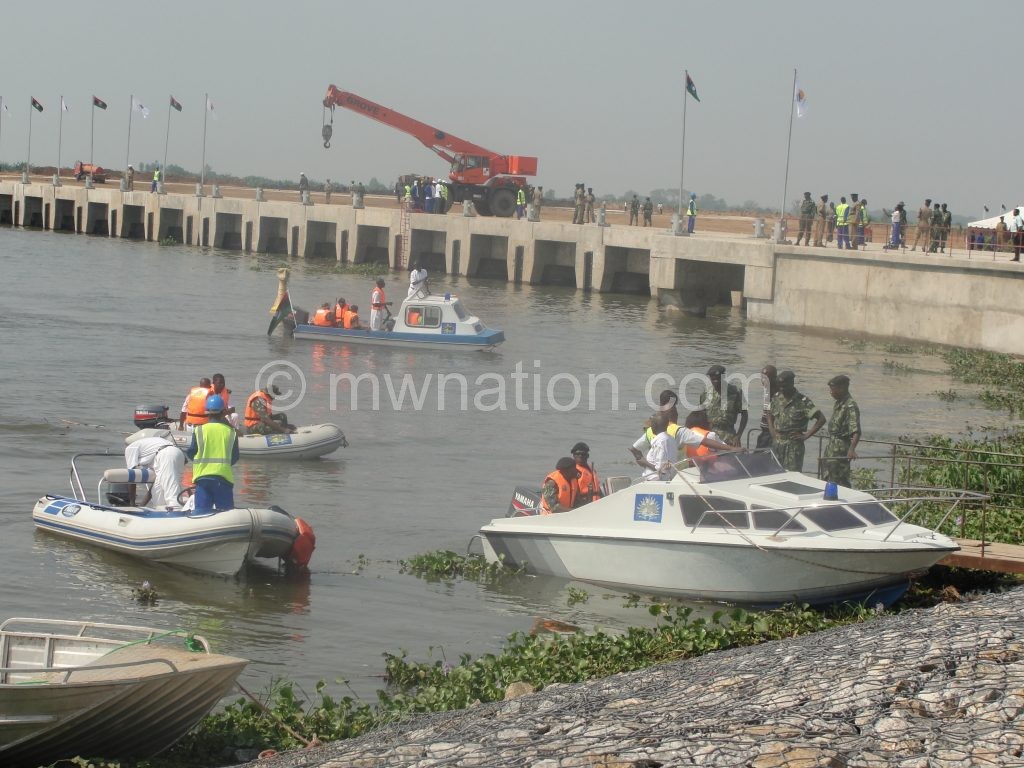Government told to abandon new port projects
Private sector lobby group Malawi Confederation Chambers of Commerce and Industry (MCCCI) has asked government to cease to pump huge sums of money in the Nsanje Inland Port and Liwonde Dry Port projects describing them as ‘unnecessary’ and ‘a waste of resources’.
Capital Hill in September last year instructed Portuguese construction and industrial conglomerate Mota-Engil to start constructing a dry port at Liwonde in Machinga expected to cost about $200 million (K143 billion) with the hope of reducing the cost of transporting goods into Malawi and reduce the tonnage of goods transported by road.

The Liwonde Dry Port project follows the Shire Inland Port construction which has so far stalled due to disagreements between Malawi and Mozambique on the construction of the Shire-Zambezi Waterway, the water route that will make the port viable.
But MCCCI president Karl Chokotho in an interview on Monday warned against government’s continued investment in such contentious projects.
The MCCCI chief believes it is better for the country to invest such money in other viable projects.
“We do not want government to be using money on things that are completely unnecessary. We have advised government not to continue with these projects but it seems government is insisting.
“These are projects that will not work and are irrelevant. Everyone in the private sector has said no to these projects but government is continuing to waste money on such projects,” he said.
Chokotho urged government to listen to the private sector and create an enabling business environment arguing that foreign investors continue to exit the business space because of a hostile environment.
He said local businesses are also choking because government owes them a lot of money and for many years, has failed to settle the arrears so that businesses can thrive again.
Chokotho’s sentiments are shared by a senior lecturer in Environmental Sciences in the department of Physics and Biochemical Sciences at the Polytechnic Chikumbusko Kaonga who also cast doubt on the viability of the Nsanje Inland Port project.
He said feasibility studies which look at the practicality of proposed plans or methods within a specific period of time may contain a margin of error.
But government has insisted that the Nsanje Inland Port project is well on course despite the climatic challenges and the complications of a regional setup that it has taken.
Government spokesperson who is also Minister of Information Patricia Kaliati earlier told Weekend Nation that the official position of the government of Malawi on the Nsanje Inland Port is that the project is on.
“These things take time but work is being done. Although the climate issues are there, the technicians had already taken all those issues into consideration,” said Kaliati.
Trade experts insist the port projects are vital for Malawi, a landlocked country surviving on Beira, Dar es Salaam and South African ports.
They argue that, the Liwonde Dry Port for example, will have a significant impact on the transport sector, since rail transport is generally cheap er than road.
It is hoped that the cost of transportation of goods from the deep sea port of Nacala in Mozambique will reduce by about 60 percent which will trickle down to the consumers.
In an earlier interview, Mota-Engil expressed excitement with the project as it will help Malawi regain its position in the world from a landlocked country to a hinterland with modern and high standard link to Nacala.





